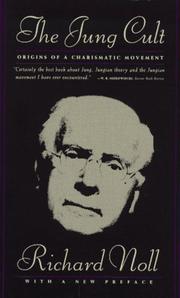| Listing 1 - 10 of 44 | << page >> |
Sort by
|
Book
ISBN: 0394736656 Year: 1979 Publisher: New York Pantheon Books
Abstract | Keywords | Export | Availability | Bookmark
 Loading...
Loading...Choose an application
- Reference Manager
- EndNote
- RefWorks (Direct export to RefWorks)
Political philosophy. Social philosophy --- Fiction --- Literature --- Utopianism --- Book
Book
Year: 2022 Publisher: Brooklyn, NY punctum books
Abstract | Keywords | Export | Availability | Bookmark
 Loading...
Loading...Choose an application
- Reference Manager
- EndNote
- RefWorks (Direct export to RefWorks)
In the early twentieth century, Uchiyama Gudō, Seno’o Girō, Lin Qiuwu, and others advocated a Buddhism that was radical in two respects. Firstly, they adopted a more or less naturalist stance with respect to Buddhist doctrine and related matters, rejecting karma or other supernatural beliefs. And secondly, they held political and economic views that were radically anti-hegemonic, anti-capitalist, and revolutionary. Taking the idea of such a “radical Buddhism” seriously, A Buddha Land in This World: Philosophy, Utopia, and Radical Buddhism asks whether it is possible to develop a philosophy that is simultaneously naturalist, anti-capitalist, Buddhist, and consistent. Rather than a study of radical Buddhism, then, this book is an attempt to radicalize it.The foundations of this “radicalized radical Buddhism” are provided by a realist interpretation of Yogācāra, elucidated and elaborated with some help from thinkers in the broader Tiantai/Tendai tradition and American philosophers Donald Davidson and W.V.O. Quine. A key implication of this foundation is that only this world and only this life are real, from which it follows that if Buddhism aims to alleviate suffering, it has to do so in this world and in this life. Twentieth-century radical Buddhists (as well as some engaged Buddhists) came to a similar conclusion, often expressed in their aim to realize “a Buddha land in this world.”Building on this foundation, but also on Mahāyāna moral philosophy, this book argues for an ethics and social philosophy based on a definition of evil as that what is or should be expected to cause death or suffering. On that ground, capitalism should be rejected indeed, but utopianism must be treated with caution as well, which raises questions about what it means – from a radicalized radical Buddhist perspective – to aim for a Buddha land in this world.
Book
Year: 2022 Publisher: Brooklyn, NY punctum books
Abstract | Keywords | Export | Availability | Bookmark
 Loading...
Loading...Choose an application
- Reference Manager
- EndNote
- RefWorks (Direct export to RefWorks)
In the early twentieth century, Uchiyama Gudō, Seno’o Girō, Lin Qiuwu, and others advocated a Buddhism that was radical in two respects. Firstly, they adopted a more or less naturalist stance with respect to Buddhist doctrine and related matters, rejecting karma or other supernatural beliefs. And secondly, they held political and economic views that were radically anti-hegemonic, anti-capitalist, and revolutionary. Taking the idea of such a “radical Buddhism” seriously, A Buddha Land in This World: Philosophy, Utopia, and Radical Buddhism asks whether it is possible to develop a philosophy that is simultaneously naturalist, anti-capitalist, Buddhist, and consistent. Rather than a study of radical Buddhism, then, this book is an attempt to radicalize it.The foundations of this “radicalized radical Buddhism” are provided by a realist interpretation of Yogācāra, elucidated and elaborated with some help from thinkers in the broader Tiantai/Tendai tradition and American philosophers Donald Davidson and W.V.O. Quine. A key implication of this foundation is that only this world and only this life are real, from which it follows that if Buddhism aims to alleviate suffering, it has to do so in this world and in this life. Twentieth-century radical Buddhists (as well as some engaged Buddhists) came to a similar conclusion, often expressed in their aim to realize “a Buddha land in this world.”Building on this foundation, but also on Mahāyāna moral philosophy, this book argues for an ethics and social philosophy based on a definition of evil as that what is or should be expected to cause death or suffering. On that ground, capitalism should be rejected indeed, but utopianism must be treated with caution as well, which raises questions about what it means – from a radicalized radical Buddhist perspective – to aim for a Buddha land in this world.
Book
Year: 2015 Publisher: New York The Feminist Press
Abstract | Keywords | Export | Availability | Bookmark
 Loading...
Loading...Choose an application
- Reference Manager
- EndNote
- RefWorks (Direct export to RefWorks)
Political philosophy. Social philosophy --- Sociology of the family. Sociology of sexuality --- Feminism --- Utopianism --- Book
Book
Year: 1991 Publisher: Paris Laffont
Abstract | Keywords | Export | Availability | Bookmark
 Loading...
Loading...Choose an application
- Reference Manager
- EndNote
- RefWorks (Direct export to RefWorks)
Political philosophy. Social philosophy --- Socialism --- Utopianism --- Biography --- Book --- Roland, Pauline --- anno 1800-1899 --- France

ISBN: 0815605552 Year: 1998 Publisher: Syracuse Syracuse University Press
Abstract | Keywords | Export | Availability | Bookmark
 Loading...
Loading...Choose an application
- Reference Manager
- EndNote
- RefWorks (Direct export to RefWorks)
Political philosophy. Social philosophy --- Socialism --- Utopianism --- Book --- Wright, Frances --- anno 1800-1899 --- United States of America
Book
Year: 2022 Publisher: Brooklyn, NY punctum books
Abstract | Keywords | Export | Availability | Bookmark
 Loading...
Loading...Choose an application
- Reference Manager
- EndNote
- RefWorks (Direct export to RefWorks)
In the early twentieth century, Uchiyama Gudō, Seno’o Girō, Lin Qiuwu, and others advocated a Buddhism that was radical in two respects. Firstly, they adopted a more or less naturalist stance with respect to Buddhist doctrine and related matters, rejecting karma or other supernatural beliefs. And secondly, they held political and economic views that were radically anti-hegemonic, anti-capitalist, and revolutionary. Taking the idea of such a “radical Buddhism” seriously, A Buddha Land in This World: Philosophy, Utopia, and Radical Buddhism asks whether it is possible to develop a philosophy that is simultaneously naturalist, anti-capitalist, Buddhist, and consistent. Rather than a study of radical Buddhism, then, this book is an attempt to radicalize it.The foundations of this “radicalized radical Buddhism” are provided by a realist interpretation of Yogācāra, elucidated and elaborated with some help from thinkers in the broader Tiantai/Tendai tradition and American philosophers Donald Davidson and W.V.O. Quine. A key implication of this foundation is that only this world and only this life are real, from which it follows that if Buddhism aims to alleviate suffering, it has to do so in this world and in this life. Twentieth-century radical Buddhists (as well as some engaged Buddhists) came to a similar conclusion, often expressed in their aim to realize “a Buddha land in this world.”Building on this foundation, but also on Mahāyāna moral philosophy, this book argues for an ethics and social philosophy based on a definition of evil as that what is or should be expected to cause death or suffering. On that ground, capitalism should be rejected indeed, but utopianism must be treated with caution as well, which raises questions about what it means – from a radicalized radical Buddhist perspective – to aim for a Buddha land in this world.
Book
ISBN: 3846765457 Year: 2021 Publisher: Paderborn Brill | Fink
Abstract | Keywords | Export | Availability | Bookmark
 Loading...
Loading...Choose an application
- Reference Manager
- EndNote
- RefWorks (Direct export to RefWorks)
Blick ins Buch Thoreau in an Age of Crisis reconsiders the relevance of 19th-century American naturalist, philosopher, and social reformer Henry David Thoreau to our troubled present. This new anthology collects the work of fourteen leading scholars from various disciplines. They consider Thoreau's life and work in light of contemporary concerns regarding racism, climate change, environmental policy, and political strife. They review Thoreau's trajectory as a scientist and literary artist, as well as his evolving attitudes toward Native American cultures. The essaysists also consider Thoreau's acoustics, concepts of play, and impact on later writers. Most provocatively, they reveal a vulnerable and empathetic Thoreau, a far cry from the distanced and misanthropic critic often portrayed in popular culture.
Thoreau --- Race Studies --- Native American Studies --- Disability Studies --- Sublime --- Utopianism --- Aesthetics --- Acoustics --- Play

ISBN: 0684834235 Year: 1994 Publisher: New York Free Press Paperbacks
Abstract | Keywords | Export | Availability | Bookmark
 Loading...
Loading...Choose an application
- Reference Manager
- EndNote
- RefWorks (Direct export to RefWorks)
Jung --- fin de siècle --- naturphilosophie --- evolutionary biology --- secular regeneration --- occultisme --- volkish utopianism --- sun worship --- solar mysticism

ISBN: 0810849127 Year: 2004 Volume: 51
Abstract | Keywords | Export | Availability | Bookmark
 Loading...
Loading...Choose an application
- Reference Manager
- EndNote
- RefWorks (Direct export to RefWorks)
Utopias --- Utopies --- History --- Dictionaries. --- Histoire --- Dictionnaires anglais --- Dictionaries --- Utopianism --- utopian thought --- Thomas More --- the Shakers --- Oneida --- Robert Owen --- the Fourierists
| Listing 1 - 10 of 44 | << page >> |
Sort by
|

 Search
Search Feedback
Feedback About UniCat
About UniCat  Help
Help News
News